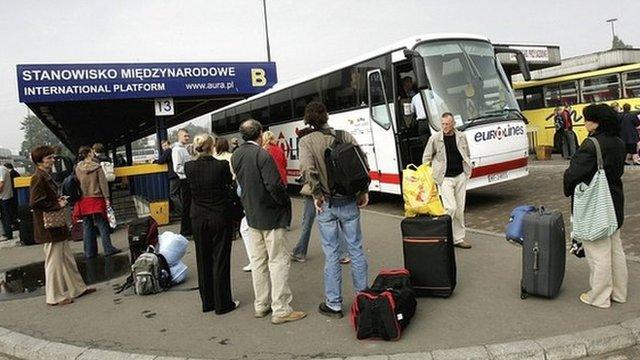The society fighting for Scotland's Poles
- Published
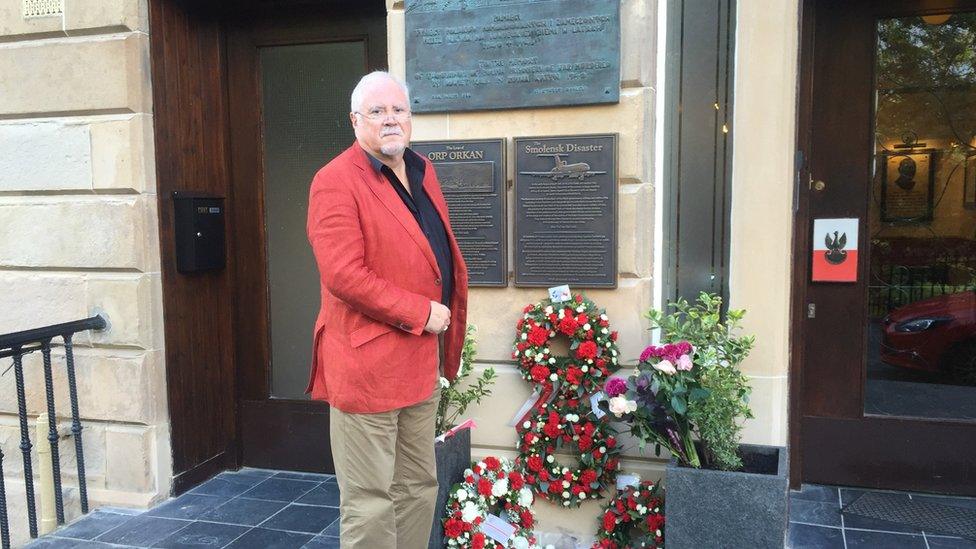
Mr Kozlowski said Poland's cultural footprint in Glasgow will "disappear" if the centre is forced to close its doors
The Sikorski Polish Club has been at the centre of Glasgow's Polish community since World War Two, but it is now under threat.
Members of the club, located in a leafy suburb in Glasgow's west end, say its dilapidated four-storey home requires urgent renovations or they fear it could close.
"Ten people will be made homeless, a popular restaurant will shut, support groups will stop and our cultural footprint will disappear," said the club's vice-chair Antony Kozlowski, a second-generation Polish immigrant.
Mr Kozlowski's father was a Polish solider who had fled his Nazi-occupied homeland for Scotland to fight for allied forces in WW2.
After the war, some Polish military personnel chose to stay in Scotland, facilitated by the Polish Resettlement Act of 1947.
'Meant everything'
"Many of the Poles had met Scottish women; most had served in Scotland," Mr Kozlowski said.
"Realising that these men, and some women, needed to be trained, not only in English, but in work that would be useful in their new home, the Polish Vocational Association started."
The City of Glasgow gifted a building in the west end to the association, premises still occupied by the Polish community.
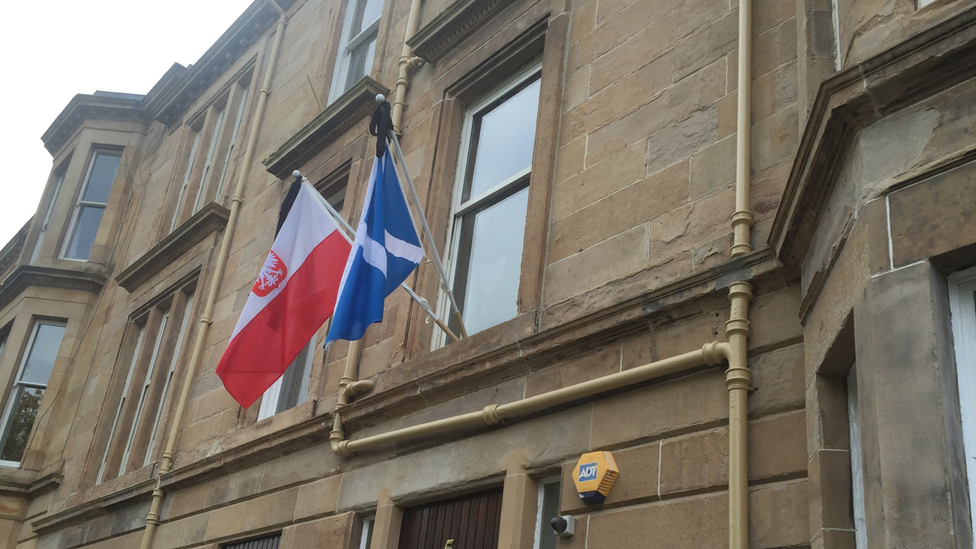
Mr Kozlowski said that along with teaching agricultural, welding, electrical and language skills, the association provided a social venue for Polish soldiers and their families that "meant everything" to them.
"Hundreds of Polish soldiers and their wives used the centre in the early days. They were ordinary men and women who had lost their homeland," Mr Kozlowksi added.
Speaking of his experience of being a Pole living in Britain shortly after the war, Mr Kozlowski said he found Scotland a "friendlier" place to live than England, but it was still challenging.
He said: "Father realised when he wanted to stay in the west of Scotland he'd need to change his name because to be Polish and Roman Catholic in those days was two strikes against you. I changed it back 57 years later."
'Severe depression'
Eight years after the vocational association was founded, it had run its course, and the needs of the Polish community in Scotland changed.
Mr Kozlowksi said: "We'd spent enough time talking about the war.
"And so, in 1954, many Poles got together and formed a Polish social and education society, aimed at integrating Poles into Glasgow and vice-versa."
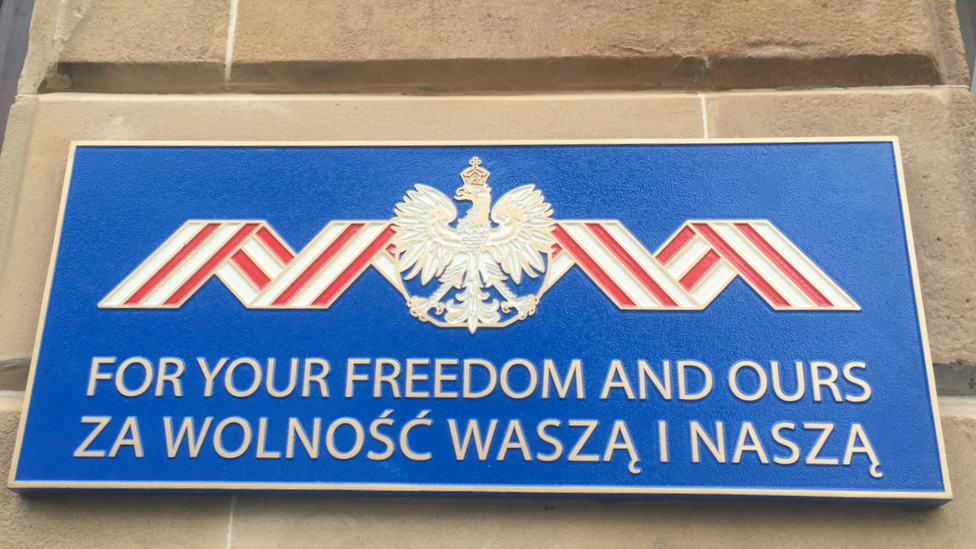
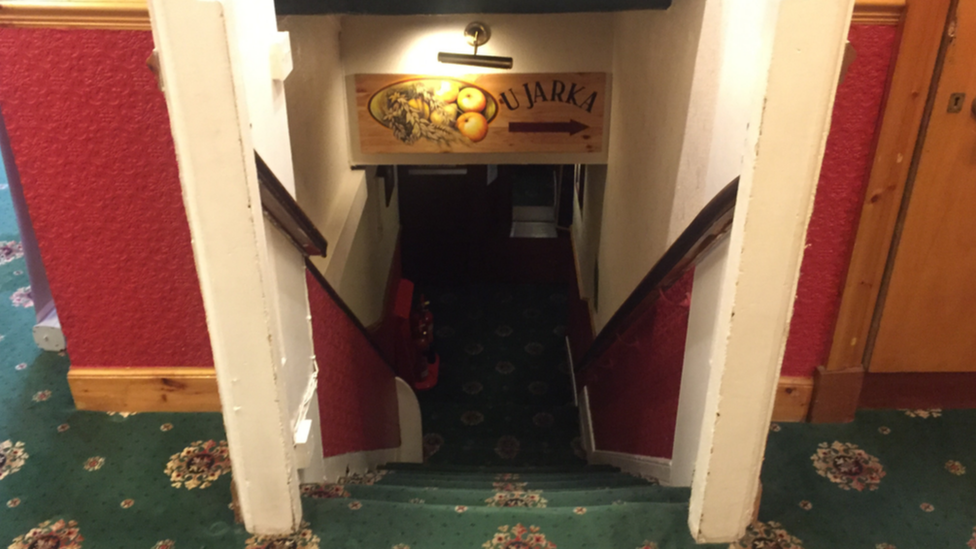
The renovation work would involve relocating a staircase
Today the society provides services such as a crisis and abuse reporting centre, language classes, support groups, a restaurant and affordable accommodation for vulnerable or low-income Poles who are members of the society.
Mr Kozlowski says one male tenant struggled with severe clinical depression. The society helped him access therapy and apply for Jobseekers' Allowance.
"At a point he owed us £3,000 in rent, but today he works and doesn't owe a penny," Mr Kozlowski said.
"We are proud of that. That's what we do, and that's what we are here for."
But, the society has said unless volunteers running the club can raise £250,000 to carry out critical repairs to the building and install a lift to comply with the Disability Discrimination Act, it will shut.
Brexit 'spanner'
Mr Kozlowski said: "We can't imagine closing the club. Our 10 residents would be homeless; friends and neighbours would lose a decent Polish restaurant; we'd have nowhere to put hundreds of books and artefacts stored in our library.
"Our cultural footprint would disappear."
Mr Kozlowski believes Britain leaving the European Union could have a negative impact on fundraising.
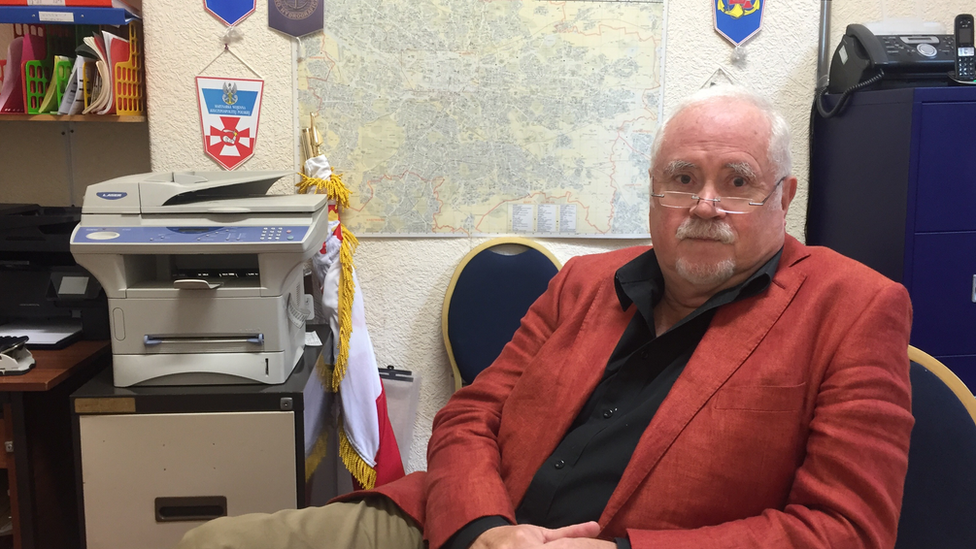
Mr Kozlowksi said Brexit "threw a spanner in the works"
"Brexit threw a spanner in the works," he said.
"Who is going to invest money in the Polish community when Westminster has very clearly said it doesn't want us?"
Along with money raised from within the community, the club is approaching foundations, grant organisations, the Lottery, the public and the Scottish and Polish governments to appeal for funding.
'Decades of neglect'
Mr Kozlowski said the 140-year-old building's crumbling condition results from decades of neglect and botched renovations from previous trustees tasked with keeping the building open.
"Any building will deteriorate. Our well-meaning predecessors on the executive committee thought it would go away. When repairs needed done, they were done patchwork," he said.
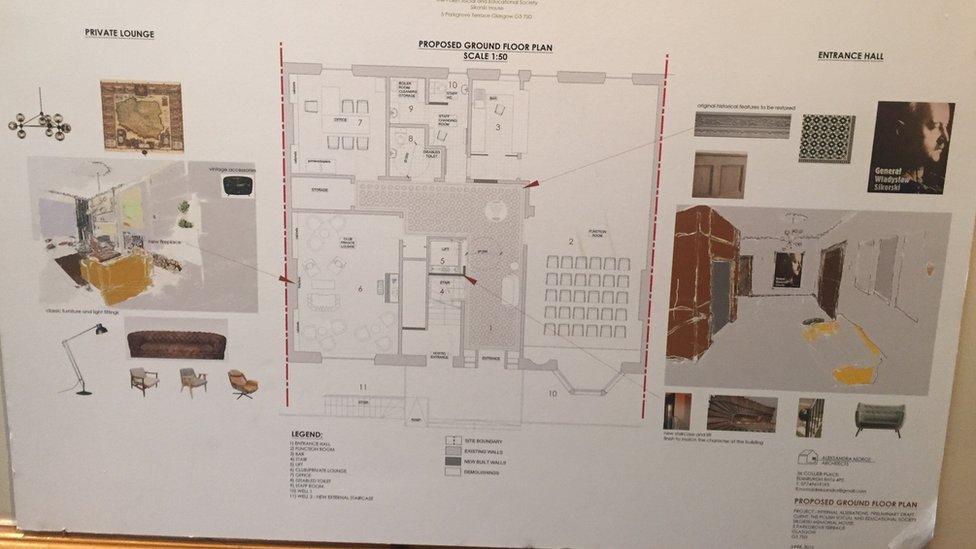
Renovation plans for the ground floor show where the new staircase and lift would be located
Mr Kozlowksi added that because of the legal implications involved, along with a language barrier, previous executive committees avoided seeking a registered charitable status for the club.
Memorial plaques
Mr Kozlowski acknowledges it was "difficult" for his predecessors and does not blame them for today's challenges.
The club became a registered charitable organisation in November 2015.
The society has already invested considerable funds into the building.
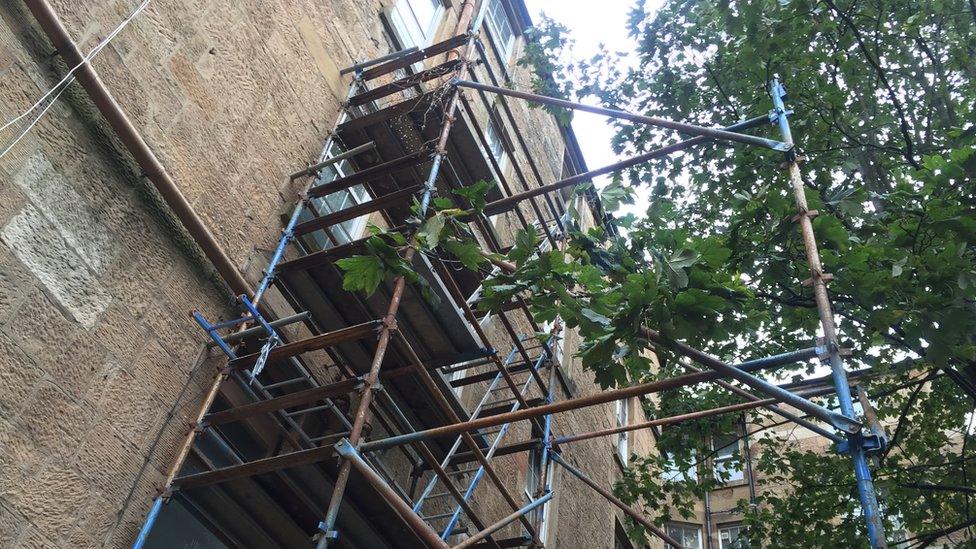
Some essential repairs have already been carried out to stabilise the building
Last year, it was required to spend £50,000 to carry-out emergency repairs to stabilise the facade of the building, which was falling off because of damaged caused by an unsuitable coating previously applied.
Mr Kozlowksi said: "It's a never-ending process of looking for money. But now we need to ramp it up."
Last week, in a ceremony attended by Communities Secretary Angela Constance, two new memorial plaques were unveiled on the outside wall of the society.
The plaques are dedicated to Poles who had lost their lives during significant events in Poland's history, such as the Smolensk air disaster in 2010, which resulted in the loss of 96 lives including that of Polish President Lech Kaczynski.
If they can secure the funds, the society hopes to have the renovation work completed by November 2018 "in time to celebrate the 100th Anniversary of Polish Independence".
- Published10 March 2015

- Published11 August 2016

- Published6 January 2014
